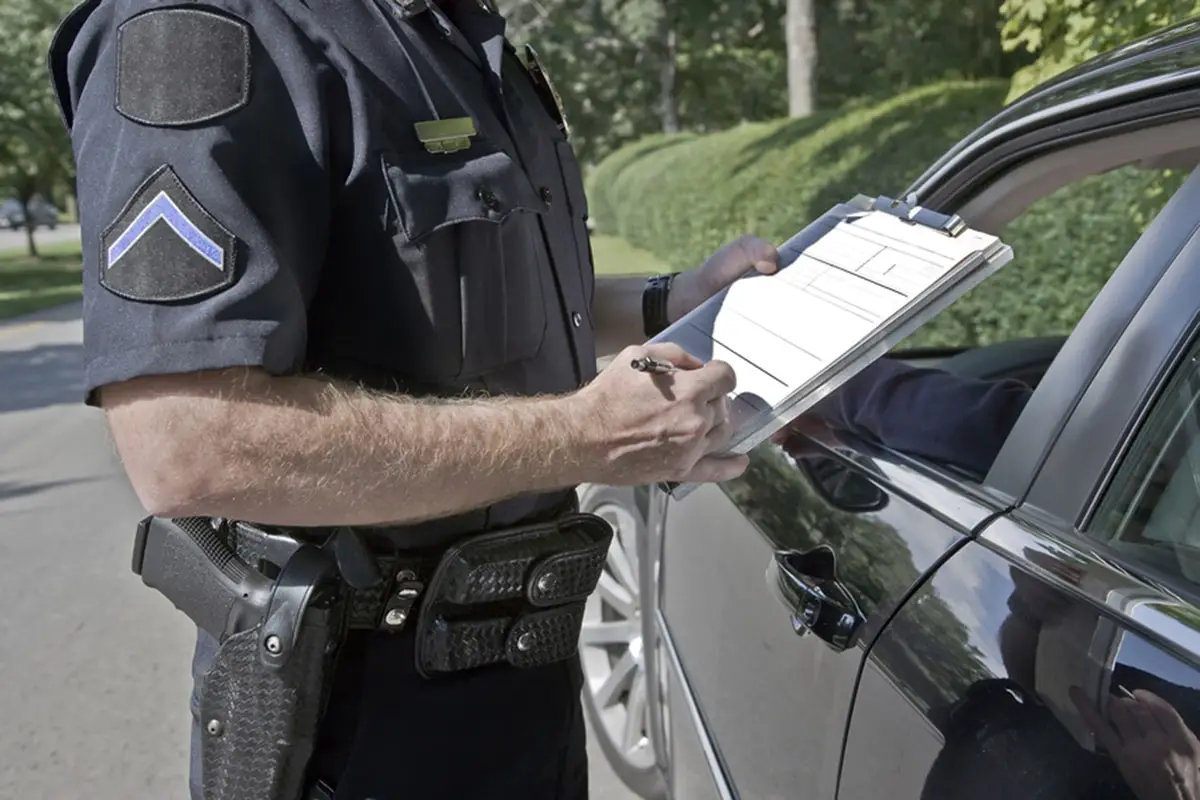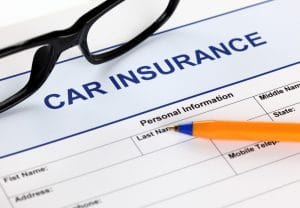Tips to Successfully Fight Your Traffic Ticket
Getting a speeding ticket may seem like the end of the world, especially with so many states imposing sky-high fines and administrative fees. In addition to those high charges, you can expect your insurance rates to increase as soon as the company gets wind of your latest run-in with the law. Fortunately, you do not have to simply accept that traffic citation, and the resulting immediate and longer-term costs, without at least trying to fight back.No matter what the traffic law or circumstances surrounding your citation, you need to remember that you are in the end dealing with a human being. That human being may be a police officer, and he or she may have the power to fine you and impact your insurance rates, but in the end that human factor can help you as well.

Understanding your options is vital when you are pulled over for speeding or another moving violation. You may be able to talk your way out of the ticket by appealing the officer directly and explaining yourself. Of course, this may not always work, but it never hurts to try. Having the right attitude when you are pulled over can also go a long way. There is no advantage to being combative or argumentative. Even if you are sure you were traveling at under the speed limit, or that you did indeed come to a full stop, now is not the time to endlessly argue your point. You will have your chance to explain why you were not violating the law when you have your day in court.
Knowledge is indeed power, especially when it comes to matters of law. When you receive a speeding ticket or other citation, the first thing you should do is look up the section of the law under which you have been charged. The more you understand about the intricacies of that law, the better off you will be.If you are lucky, you will discover a loophole in the law that will help you prove that you were in the right. For instance, some states have very specific laws governing how high or low the speed limit can be set, based on things like the presence or absence of sidewalks or the width of the road. If you can prove in court that the speed limit posted on the road where you were pulled over, you can not only beat your traffic ticket but help others as well.Even if you do not find an instant loophole that allows you to beat the speeding ticket out of hand, understanding the law can make your chances in court a lot better. When you appear in court to fight your traffic citation, the judge will expect you to have a working knowledge of the law under which you were cited. If you simply show up and expect to fight your case without that knowledge, chances are you will not be successful. You can be sure that the police officer who pulled you over will understand the law, and so should you.
If you plan to go to court to fight your traffic ticket, you need to prepare for that day carefully. After all, your reputation, and lots of money, is on the line. You need to document everything that happened on the day you were pulled over, from the weather conditions and the presence of other traffic, to the nature of the road and the position of the signage.You should take lots of pictures of the area where you were pulled over, along with the surrounding region. If you were cited for failure to yield or stop at a stop sign, take pictures of the sign itself, and some long shots showing the visibility (or lack of visibility) of the sign as you approach it. If you can prove to the satisfaction of the judge that the sign is not positioned properly, or it is difficult to see, you may be able to beat the rap.

You would be surprised at how many people show up for court looking like they just came in from working on their cars. When you go to court, you need to look the part, and that means putting your best foot forward with the way you dress.When deciding what to wear to your traffic court date, keep in mind that the police officer who pulled you over will be in full dress uniform, including his or her badge and the instant credibility that provides. You should dress similarly professionally, even if you cannot wear a uniform. That means a conservative business suit or high quality dress if you are a woman, and a well tailored suit if you are a man. Dress carefully before you leave for your court date, then take one last look at yourself in the mirror before you head out. Take one more look by visiting the bathroom and checking your appearance before you head out to the courtroom.
During the traffic court session you will be confronting the police officer who pulled you over, but it is important not to be confrontational. When you go to court, you have to keep your emotions in check and simply present the facts of your case in a clear, consistent, and non-passionate manner.Understanding the nature of the traffic law under which you were cited, and preparing properly for your court date, are the two most important things you can do to beat your traffic ticket. Getting a traffic ticket or speeding citation overturned is not easy, but it can be done if you know the right procedures.
When you are cited with a moving violation, the officer should provide you with your options, which generally include paying the ticket, requesting a court date, and in some cases in certain states, attending driving school to avoid points on your license. Most states require you to notify the court in writing of your desire to appear before a judge within 30 days of the ticket being issued; be sure you do this or you could end up with all the penalties associated with the moving violation as well as late fees.

There are a variety of laws related to moving violations, and they tend to differ from state to state. Even if you were guilty of the traffic violation you have been ticketed for, if an officer did not follow particular steps, you may be able to have the charges dismissed by a judge. For example, many states require that an officer estimate your speed in addition to using other methods, such as radar guns or pacing, to determine how fast you were going. If they fail to do this, you may be able to avoid penalties.
Many cases are not straightforward, and you may be able to fight moving violations with additional information. If traffic signs were difficult to see or lines on the road are faded, this may be important evidence that could help your case. Additionally, vehicle performance may also impact your case, such as if your speedometer was not working or your brakes weren’t operating properly.Be sure to have photos, documents and related evidence to present to a judge to show why you were unable to follow the law as written. Paperwork from an automotive repair shop will do a great deal more for your case than stating you had a problem with your vehicle that led to the traffic violation.
Present Your Case And Be Willing To Negotiate
You may want to bring an outline to court with you to ensure that you cover all salient points. The more information you have, the stronger your case will be. Along with presenting a complete set of facts, be aware that judges may be flexible and work with you, especially if you have a relatively clean record. Even if you do not have your case dismissed, you may be able to have your fine reduced or avoid points on your license by negotiating with a judge.
How to Protect Yourself After a Speeding Ticket
Seeing the lights of a police car behind you and hearing the siren is bad enough, but the ticket itself is just the start of your problems. When you incur a moving violation, your insurance company is likely to raise your rates the next time your policy comes up for renewal. Getting caught going 15 miles per hour over the speed limit could raise your annual premium by more than 25 percent — that’s a hike of more than $250 on a $1,000-a-year policy.Fortunately, there are a few things you can do to minimize your chances of a premium hike. If you are an older driver, you might be able to rest easy — or at least avoid immediate pain. Since drivers 50 years of age and older tend to have fewer accidents, many insurance companies review their driving records less often. The insurance company may eventually find out about the ticket, but likely not in time for the next renewal period.Even if your insurance company checks your driving record every six months, as they do for most younger drivers, taking a few proactive steps now can protect you and minimize the pain of a rate hike.
If you think the ticket was unwarranted or excessive, take it to court. You have the right to state your case in court, and in many cases you can get the charges reduced or dismissed entirely.
Take Defensive Driving Course
If the ticket does stand, take the opportunity to enroll in a driving school or defensive driving course. Check with your local department of motor vehicles to see what steps you can take to remove any points from your driving record. If you are successful in this strategy, you could remove most (or even all) of the points before the insurance company checks your driving record again.
Learning From Your Mistake
You can also minimize the pain of a traffic ticket by learning from your mistakes. Vow to become a safer (and slower) driver from now on. You will reduce your chances of another expensive speeding ticket and cut your risk of an accident.
Shop Around For Better Coverage

If you fear a rate hike is in the cards no matter what you do, use the time before your next renewal to shop around for better coverage. Be honest with the representative about your past driving experience, including that costly ticket. Insurance companies have different criteria for setting rates, so shopping around is in your best interest. The company you are currently with may take a dim view of your latest moving violation, but a competing firm may be more forgiving.In a perfect world, we would all stick to the speed limit and there would be no need for traffic enforcement, but we do not live in that world. Even the most careful driver can get a speeding ticket. The steps you take when you get that moving violation can make a big difference in your car insurance rates.
How to Avoid Getting a Parking Ticket
Many drivers at one point in their lives have received a parking ticket. Some drivers take a chance and park illegally because they think they won’t get a ticket. However, many others just don’t pay attention to signs or know the rules of the road. Here are some quick tips to help drivers avoid getting parking tickets.
Be Informed Before You Park
Familiarize yourself with your city’s parking laws. Many cities display parking information on their websites including maps, fees and how to pay. The maps usually show parking zones and their corresponding fees. Know what each zone charges and park in an inexpensive zone to save money.
Look carefully at the parking signs posted on the street. A valid parking sign may have additional information on it such as length of stay and time of day. Look for signs designated as residential and disabled parking only. Beware of no stopping zones – not only will you get a ticket but your vehicle may be towed.
Avoid parking in lanes and alleys, especially in downtown areas. Many alleys are designated thoroughfares for emergency vehicles. Also, lanes and alleys are used mainly for commercial deliveries and pick-up of sanitation. Look for signs that indicate where you can and cannot park.
Avoid parking at bus stops. If a vehicle is parked at a bus stop, the bus has to stop in the middle of the street – making it dangerous for passengers getting on and off the bus. Also, leave room for the bus when you park. Buses must be able to safely negotiate their way in and out of their designated stop.

Read parking meters before you pay and walk away. Instructions should be clearly marked on the meter. Some municipalities have eliminated meters and replaced them with pay terminals – usually one per every block. These terminals are meant to be user friendly, but first-time users should read them carefully.
Avoid parking your vehicle near street corners. A vehicle parked on a corner makes it unsafe for other drivers to negotiate their way through the intersection. Large vehicles, such as a bus, may not be able to make a right turn if your vehicle is parked too close to the corner.
Keep spare change in your vehicle. Many cities have eliminated parking meters and cash as an option to pay for parking. Drivers may still encounter standard parking meters in some cities which accept only coins, so it is best to play it safe.
Use your cell phone to pay for parking. Some cities have introduced a parking system that allows users to pay parking fees using their cell phone. A driver sets up an account with the city using their vehicle license plate number. When the driver parks in a designated parking spot, they dial a phone number and enter the code for their spot. The parking session ends when the driver returns to their vehicle and dials the phone number again to terminate their time.
Park in private lots to eliminate municipal parking tickets altogether. These lots are usually run by large companies who charge daily, monthly and annual rates for long-term users.Parking in the city takes patience and knowledge. Get informed about the parking laws in your city and you will save yourself time and money.
 Understanding your options is vital when you are pulled over for speeding or another moving violation. You may be able to talk your way out of the ticket by appealing the officer directly and explaining yourself. Of course, this may not always work, but it never hurts to try. Having the right attitude when you are pulled over can also go a long way. There is no advantage to being combative or argumentative. Even if you are sure you were traveling at under the speed limit, or that you did indeed come to a full stop, now is not the time to endlessly argue your point. You will have your chance to explain why you were not violating the law when you have your day in court.
Understanding your options is vital when you are pulled over for speeding or another moving violation. You may be able to talk your way out of the ticket by appealing the officer directly and explaining yourself. Of course, this may not always work, but it never hurts to try. Having the right attitude when you are pulled over can also go a long way. There is no advantage to being combative or argumentative. Even if you are sure you were traveling at under the speed limit, or that you did indeed come to a full stop, now is not the time to endlessly argue your point. You will have your chance to explain why you were not violating the law when you have your day in court. You would be surprised at how many people show up for court looking like they just came in from working on their cars. When you go to court, you need to look the part, and that means putting your best foot forward with the way you dress.When deciding what to wear to your traffic court date, keep in mind that the police officer who pulled you over will be in full dress uniform, including his or her badge and the instant credibility that provides. You should dress similarly professionally, even if you cannot wear a uniform. That means a conservative business suit or high quality dress if you are a woman, and a well tailored suit if you are a man. Dress carefully before you leave for your court date, then take one last look at yourself in the mirror before you head out. Take one more look by visiting the bathroom and checking your appearance before you head out to the courtroom.
You would be surprised at how many people show up for court looking like they just came in from working on their cars. When you go to court, you need to look the part, and that means putting your best foot forward with the way you dress.When deciding what to wear to your traffic court date, keep in mind that the police officer who pulled you over will be in full dress uniform, including his or her badge and the instant credibility that provides. You should dress similarly professionally, even if you cannot wear a uniform. That means a conservative business suit or high quality dress if you are a woman, and a well tailored suit if you are a man. Dress carefully before you leave for your court date, then take one last look at yourself in the mirror before you head out. Take one more look by visiting the bathroom and checking your appearance before you head out to the courtroom. There are a variety of laws related to moving violations, and they tend to differ from state to state. Even if you were guilty of the traffic violation you have been ticketed for, if an officer did not follow particular steps, you may be able to have the charges dismissed by a judge. For example, many states require that an officer estimate your speed in addition to using other methods, such as radar guns or pacing, to determine how fast you were going. If they fail to do this, you may be able to avoid penalties.
There are a variety of laws related to moving violations, and they tend to differ from state to state. Even if you were guilty of the traffic violation you have been ticketed for, if an officer did not follow particular steps, you may be able to have the charges dismissed by a judge. For example, many states require that an officer estimate your speed in addition to using other methods, such as radar guns or pacing, to determine how fast you were going. If they fail to do this, you may be able to avoid penalties. If you fear a rate hike is in the cards no matter what you do, use the time before your next renewal to shop around for better coverage. Be honest with the representative about your past driving experience, including that costly ticket. Insurance companies have different criteria for setting rates, so shopping around is in your best interest. The company you are currently with may take a dim view of your latest moving violation, but a competing firm may be more forgiving.In a perfect world, we would all stick to the speed limit and there would be no need for traffic enforcement, but we do not live in that world. Even the most careful driver can get a speeding ticket. The steps you take when you get that moving violation can make a big difference in your car insurance rates.
If you fear a rate hike is in the cards no matter what you do, use the time before your next renewal to shop around for better coverage. Be honest with the representative about your past driving experience, including that costly ticket. Insurance companies have different criteria for setting rates, so shopping around is in your best interest. The company you are currently with may take a dim view of your latest moving violation, but a competing firm may be more forgiving.In a perfect world, we would all stick to the speed limit and there would be no need for traffic enforcement, but we do not live in that world. Even the most careful driver can get a speeding ticket. The steps you take when you get that moving violation can make a big difference in your car insurance rates. Read parking meters before you pay and walk away. Instructions should be clearly marked on the meter. Some municipalities have eliminated meters and replaced them with pay terminals – usually one per every block. These terminals are meant to be user friendly, but first-time users should read them carefully.
Read parking meters before you pay and walk away. Instructions should be clearly marked on the meter. Some municipalities have eliminated meters and replaced them with pay terminals – usually one per every block. These terminals are meant to be user friendly, but first-time users should read them carefully.